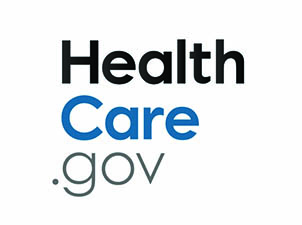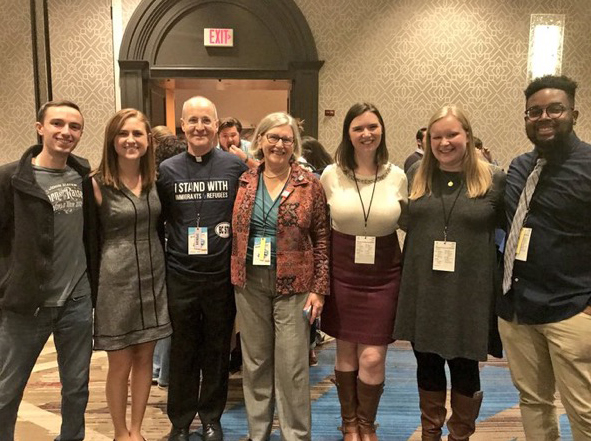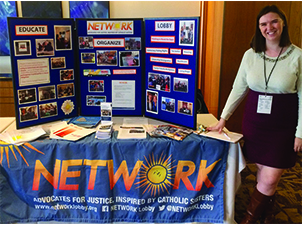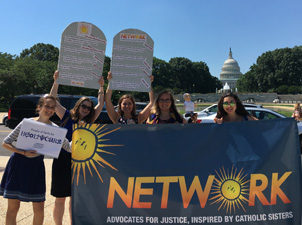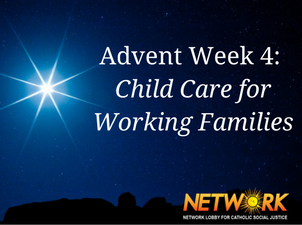
Healthcare Open Enrollment 2018
Mary Cunningham
November 2, 2017
At NETWORK we believe that healthcare is a human right. Regardless of financial status or geographic location, everyone should have access to quality, affordable care. It is vital that as people of faith we strive to protect the human dignity of all. One way of doing this is to encourage everyone who doesn’t already have coverage for a healthcare plan to sign up during Open Enrollment. Not sure where to start? Read below to see what Open Enrollment is all about.
Spreading the Word about Open Enrollment
One very important way to spread the word is to use your social media accounts to share facts with your friends and followers. When you tweet, use the hashtag #SoulsToEnroll to show your support for Open Enrollment. Another way to share information is to include an insert in your church’s bulletin with the dates for the Open Enrollment period and information about how to sign up.
For more ideas about how to promote healthcare enrollment, check out NETWORK’s Open Enrollment Toolkit.
Who Can Sign Up
Anyone can get coverage through a state marketplace or healthcare.gov if they are not already covered through a job, Medicare, Medicaid, CHIP or another source. Twelve states (California, Colorado, Connecticut, District of Columbia, Idaho, Maryland, Massachusetts, Minnesota, New York, Rhode Island, Vermont, Washington) have their own exchanges and their own deadlines to sign up for 2018 coverage. The rest of the country will use the federal exchange at healthcare.gov.
When to Sign Up
The Open Enrollment period this year starts November 1 and ends December 15. After this period, you can only enroll for 2018 health insurance if you experience a qualifying life event that makes you eligible for a Special Enrollment Period. Notice that this year the enrollment period is shorter than usual — it no longer ends on January 15. Thus, it is vital to go to healthcare.gov as soon as possible to look at plans and to sign up.
How to Sign Up
Individuals can sign up for a healthcare plan through healthcare.gov or their state-based marketplace’s website. These websites allow you to search different plans and get access to affordable healthcare coverage. By shopping around you can compare plans to see what best fits your needs. Even if you already have a plan, it’s worth checking out and comparing new options. Plans change from year to year, meaning the cost of your current plan may have changed.
While signing up for a healthcare plan may seem intimidating, you don’t have to do it alone! There are several ways to sign up including online, over the phone, in person, through an agent, or using a paper application. If you have questions there is also a 24/7 call center you can call every day (except Thanksgiving) during Open Enrollment for assistance. The number is 1-800-318-2596.
Why Sign Up?
Getting coverage is important! Signing up for a plan will help protect you from unforeseen injuries, illnesses or accidents. Access to healthcare is a right, and obtaining health insurance is an important step for securing access to care in the United States.
Despite the common conception that healthcare plans are costly, plans on healthcare.gov can be affordable. These plans are required to provide free preventative care with no co-pay. In addition, they must cover benefits like prescription drugs and maternity care. It is important now more than ever to sign up for a plan so you can guarantee you and your loved ones are protected. Spread the word!







